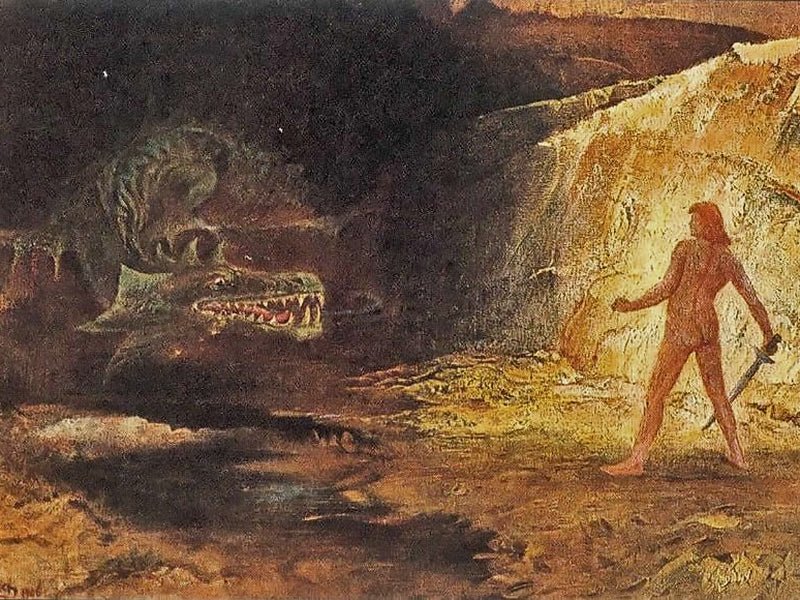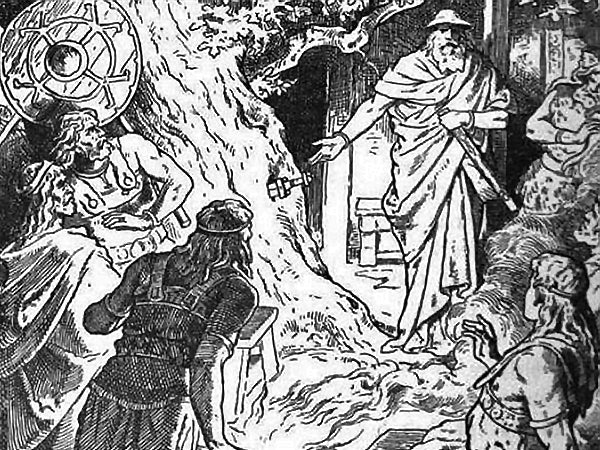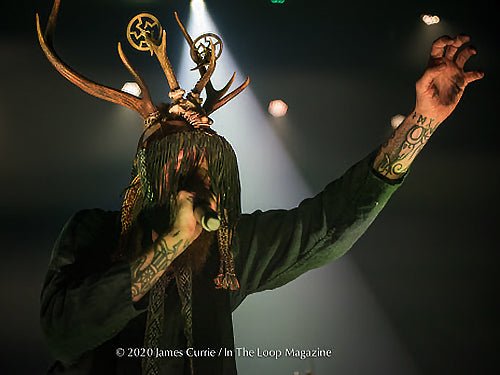'Fafnir and the Cursed Hoard' described how Fafnir and Regin murdered their sorcerer father Hreidmar for his treasure. Fafnir, the stronger of the two, drove Regin away and took the gold, and his father’s instruments of magic, and the cursed ring Andvaranaut, to the heath of Gnitta, where he transformed himself into a great dragon and brooded over his hoard.

Regin took his grudge to the court of King Alf, where he found both work and honor as a smith. When King Alf married Hjordis, who was the widow of a dead hero, Alf gave the dead hero’s son, Sigurd, to Regin to be his foster-son. Observing that the boy was brave, quick to learn, and strong in mind and body, Regin saw his way to wealth and to revenge.
Regin needled Sigurd about not living up to the wealth, the fame or the courage of his father, and he urged repeatedly that wealth and fame could be gotten and courage shown by slaying Fafnir. When Sigurd appeared less than eager, Regin taunted him as a coward unworthy of his father. Sigurd flushed, demanded why he, a boy, should be expected to do what no man had done, and asked why Regin was obsessed with Fafnir. Regin described bitterly how Fafnir had murdered Hreidmar and robbed Regin. (Naturally he left his own role in the murder out.)
Sigurd, outraged, agreed to go against the dragon if a suitable sword could be made for him. He broke the first two swords his foster-father made. Then he asked Hjordis for the shards of his father’s sword Gram.

Regin re-forged these shards into a wonder-blade that could split an anvil and a floating tuft of wool with equal ease. Sigurd was satisfied with his weapon. After winning a bitter battle against his father’s slayer (a tale which will be told in 'Sigurd’s Line') he was satisfied with his own skill as well, and he followed Regin to Gnitta-heath.
As they rode out of the living lands into a waste of blasted stone marked with slots where Fafnir had hauled his great bulk along, Sigurd wondered aloud how he could defeat the dragon. Regin suggested that, instead of meeting Fafnir face to face, Sigurd could dig a pit in one of Fafnir’s paths and then stab him from below.

Sigurd agreed to this, but asked what would happen when the dragon’s blood filled the pit. Regin – who had thought of this and hoped Sigurd hadn’t – called Sigurd a coward again and hurried away. But Sigurd set himself to digging and thinking. When an old man came by, leaning on a staff, and asked what Sigurd was doing, Sigurd explained. When the old man suggested digging side ditches through which the boiling blood could drain away, Sigurd agreed and redoubled his efforts, too preoccupied to wonder at finding another human in that waste, or to recognize the wanderer as Odin.

When Sigurd felt the earth shaking around him, he gave over digging and positioned himself in the dragon’s path. The foulness of smoke and dragon venom filled the air. Sigurd held his breath and clutched his sword. When Fafnir crawled above him, cutting off light and clean air altogether, Sigurd stabbed hard, and when the body above him arched away he leaped out of the pit, ready to fight a dragon reared to strike.
But Fafnir was past fighting. Sigurd’s sword was deep in his guts. When Sigurd pulled the blade free gouts of boiling blood poured out, and the rocks shattered as the dragon struck them in his death-throes.

When the worst pain was past Fafnir lay still and spoke to his slayer, saying that the hoard he had come to win was accursed, and that it would cause Sigurd’s death if he took it. Sigurd shrugged this off, saying that mortal men were bound to die eventually, and in the meantime he would take the gold. Then Fafnir laughed. “My brother Regin has wrought my death,” he said, “and I am not sorry that he will cause yours.” Then he breathed his last. And Sigurd, half sick with the dragon-stench, shaken in the midst of his triumph, looked up and saw his foster-father, whom Fafnir had said would kill him, picking his way across the blasted heath.
What came of that meeting will be told in a later blog post.



